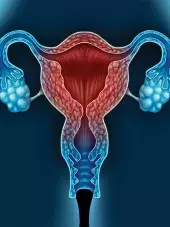Updated toolkit to guide healthcare professionals in managing menopause
By Melanie Hinze
The ‘incredibly popular’ 2014 Practitioner’s Toolkit for Managing Menopause has been completely revised to provide a concise, desktop aid for healthcare professionals caring for women undergoing the menopause transition, an Australian expert told Medicine Today.
Professor Rodney Baber, Clinical Professor of Obstetrics and Gynaecology at the University of Sydney, and Head of the Menopause and Menstrual Disorders Clinic at Royal North Shore Hospital, Sydney, said the new toolkit had been updated to include advice from national and international menopause guidelines, position statements and consensus statements published since 2014.
Published in Climacteric, the Monash University-led 2023 Practitioner’s Toolkit for Managing Menopause has been endorsed by the International, Australasian and British Menopause Societies, the Endocrine Society of Australia and Jean Hailes for Women’s Health, and is designed to be used anywhere in the world.
‘The toolkit provides clinicians with an up-to-date, simple to use guide on the management of menopause in women of all races and includes clear guidelines and algorithms to assist clinicians in providing best practice management for women,’ said Professor Baber, who is also the Editor in Chief of Climacteric.
To update the toolkit, the authors searched guidelines and position and consensus statements relating to menopause that were published after 2014. Key recommendations were extracted, and the peer-reviewed literature was searched for information gaps.
The result is a 2023 toolkit that includes information relating to the reasons why women present, information that should be sought from these women, issues that may influence shared decision-making and algorithms that assist with the determination of menopausal status, menopausal hormone therapy (MHT) and nonhormonal treatment options for symptoms relief.
‘This new toolkit includes simpler checklists and algorithms to ensure best practice care is provided to all midlife women,’ Professor Baber added.
The authors noted that the new toolkit had also been expanded to support shared decision-making regarding bone health, as clear guidelines on when MHT might be indicated to prevent bone loss and subsequent osteoporosis in asymptomatic women were lacking in the previous version.
‘This paper was subjected to about 20 peer reviews, where the norm is two to three, from experts in the field from around the world so it really is a state of the art, simple to use document, which has been endorsed by leading societies in Australia and overseas,’ Professor Baber said.
‘I am delighted to recommend it to my colleagues,’ he added.
Climacteric 2023; https://doi.org/10.1080/13697137.2023.2258783.


